
Learn how a SaaS partner program can help you reach your company goals, types of SaaS partner programs, and best practices to follow for success.

Is your SaaS business not seeing the results you expected from traditional ads? There’s a more effective, more economic strategy to scale your growth – a SaaS partner program.
Some of the biggest SaaS brands, including HubSpot CMS, SEMrush, Zendesk, and Databox, launched partner programs early on, which were instrumental in helping them scale. These brands continue to use their partnerships to accelerate growth, encourage user retention, and increase revenue.
There are several types of SaaS partner programs, including referral, affiliate, integration, and reseller partnerships.
All have the potential to widen your company’s distribution and sales – as long as you select the right type for your business needs.
In this article, we show how a SaaS partner program can help you reach your company goals, and the best practices to follow for success.
A SaaS partner program (also known as a channel partnership) is a partnership with third parties, either businesses or individuals, who agree to help market and/or distribute your software to new audiences.
As an incentive for helping increase your sales, you reward your partners with cash rewards, tangible incentives, or sales commission. Regardless of the incentive, a key element always stays the same – the more software sold, the bigger the partner’s reward.
It’s important to note that a SaaS sales partner does not become your employee. Although your partners will sign a formal agreement to market or sell your software, they still remain independent entities.
SaaS partner programs come in several types, and it’s important to select the right one for your business needs.
Although each of these partner programs involves a different type of partner and promotional format they all share one important element in common. All of them can be run with PRM software (also called partner relationship management software), which streamlines tracking and automates key components of your program.
Here are five of the most common types of SaaS partner programs you can choose from:
In a reseller partnership, you license partners to sell your software on their own channels. Most reseller partners sell your SaaS in their software marketplaces, alongside various other programs.
But resellers go beyond just opening up another distribution channel. They also add extra value to the purchase – hence the common term “value-added resellers.” Resellers are trained to assist customers in using the software, all the way from installation and customization to customer support.
An excellent example of a reseller partnership is between Fiscal Foundations and QuickBooks. The former resells QuickBooks subscriptions alongside offering software setup, customization, and support services.
Affiliate programs are one of the most commonly used SaaS partner programs. In this model, your business partners with content creators, website owners, and agencies to market your product.
But unlike resellers, who sell your software on their platforms, affiliates drive leads to your platform and encourage them to buy directly from you.
Affiliate partners place a unique affiliate link on their website or other digital channels to direct their audience to your sales page.
They also create marketing content, like reviews and testimonials, in an effort to convince as many people as possible to buy (and increase their commission payouts).
Every time a user clicks on the link and purchases your software, you reward the responsible affiliate with a cash commission.
In a referral partnership, you select existing customers to refer your software to their friends, family, and others they’ve already developed a relationship with.
Since referral partners are already customers who have used your software, they’re well-equipped to share what makes you stand out. These recommendations are especially effective because of the high level of trust between connected peers.
Referral partnerships tend to bring in fewer sales compared to other partnerships because of the select scope. But all of those leads are warm. Referrals are more likely to purchase from you, and more likely to stick with your software in the long run. (This is perfect if your SaaS is a subscription-based software.)
While very similar to customer referral programs, referral partnerships are more formal agreements with hand-picked partners, whereas a SaaS referral program lets any customer participate informally.
Agents or brokers market to potential customers who are likely to purchase your software. They make meaningful connections with leads and direct them to your site, and you reward the responsible agent for every successful sale.
Agents haven’t necessarily used your products before, but are willing to help market your company in exchange for rewards.
Like affiliates and referral partners, agents do not resell your products. They simply bring interested customers to your platform to make their final purchase.
An integration partnership is a strategic partnership with a non-competing software company whose products integrate with your own. The partner lists your product on its marketplace as a product that integrates with their own. For example, someone might list themselves and compatible products like Hubspot phone integration, or easy WordPress integration.
Like affiliates, integration partners place links to your website on their own pages, and earn rewards when anyone who comes from their site makes a purchase. However, their objective is far more purposeful than that of affiliates because they’re promoting each of your SaaS products in tandem.
While some integration partnerships have monetary rewards attached to them, the real value in this partnership is the brand awareness and sales your SaaS companies concurrently bring to each other.
Searching for inspiration as you build your own partner program? We’ve got you covered with these stellar partner program examples, one for each of the five program types we’ve highlighted above:
Drift’s Solutions Partner Program is their take on a value-added reseller setup. Partners customize and optimize Drift’s conversational chat AI for the needs of their clients, and sell these versions on their own sites.
What stands out most about this partner program? The many layers of support for partners have a trickle-down effect on the customers each partner attracts, and results in increased acquisition and retention for both Drift and its partners.
For example, partners gain access to detailed sales resources, including an exclusive community where they can address questions to Drift and learn from other resellers.
A dedicated channel account manager gives personalized help to each partner so they can drive more sales. And the opportunity to get Drift certified for free means partners are especially equipped to offer Drift support whenever customers need it.
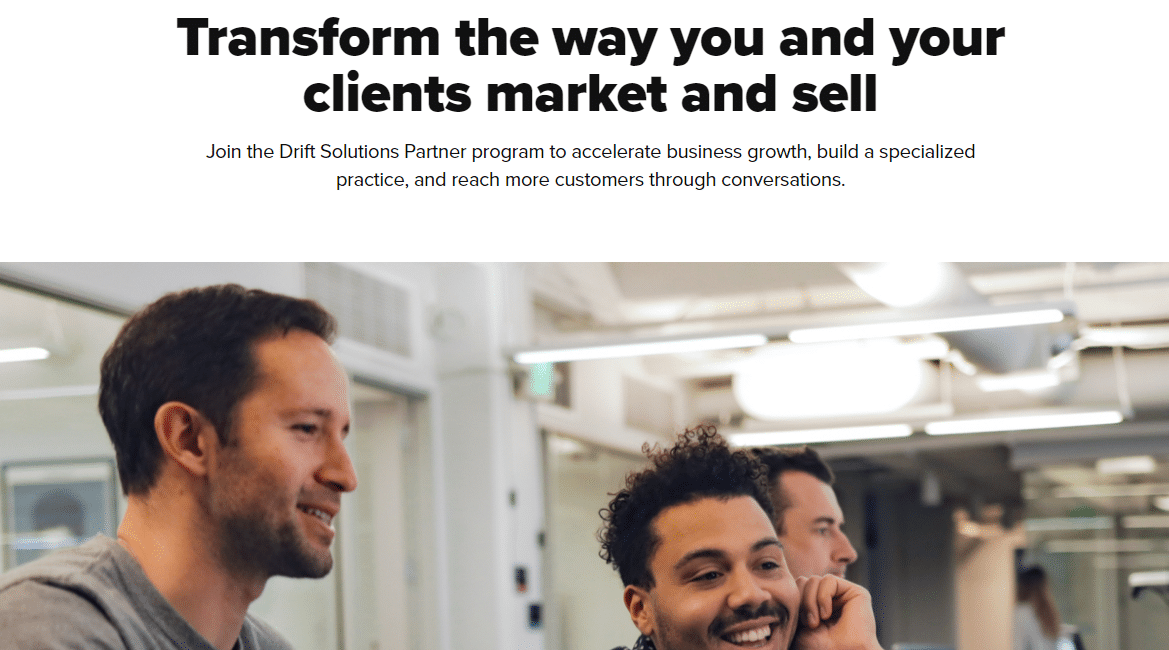
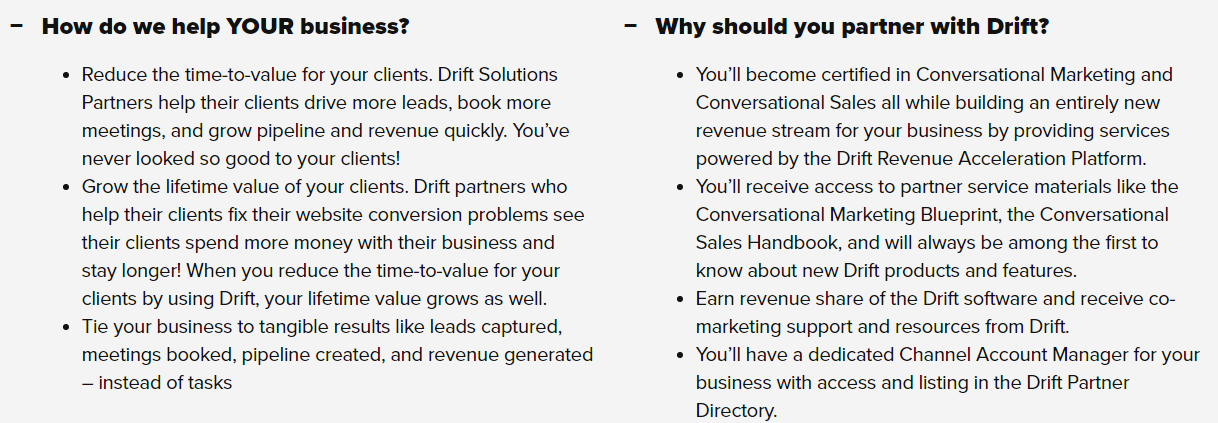
Customer experience automation software ActiveCampaign knows how to run an effective affiliate program. The program’s enticing commission starts at 20%, recur whenever referred subscribers renew, and can increase to 30% for subscriptions that are continuously renewed.
ActiveCampaign offers plenty of promotional resources for affiliates to feature in their content, including graphics, videos, and even access to webinars, which increases their chances of getting sales.
And thanks to their dedicated partner portal, it’s easy for affiliates to access these resources, track sales, and reach out with any questions or concerns.
ActiveCampaign also provides quick-start tools and tips to help affiliates start earning commission as soon as possible.
Similar to the Drift program, ActiveCampaign partners have access to an exclusive online community, where they can help fellow affiliates and stay updated on ActiveCampaign news.
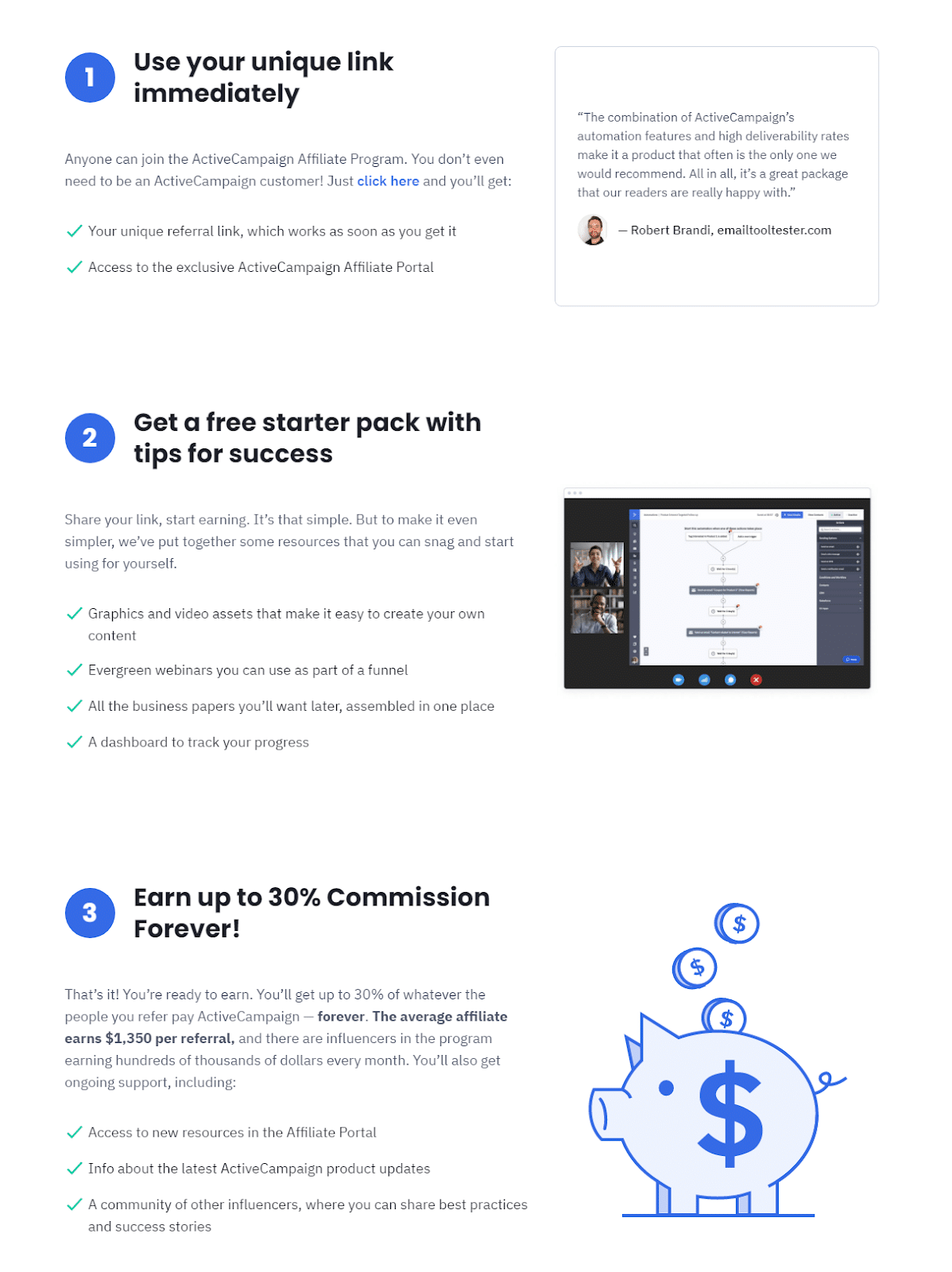
Instead of hosting a traditional referral program, NetSuite has chosen a more formalized approach where customers apply to promote NetSuite software as referral partners. These partners identify companies that they’ve developed relationships with, who might benefit from Netsuite’s CRM or enterprise resource planning software.
When partners make successful referrals, they receive a referral commission of 10% of the new customer’s first year license payment. Partners are equipped to advocate for NetSuite in the long term, thanks to exclusive access to new releases, brand developments, co-branded promotional materials, and webinars.
NetSuite’s referral partnership program exists alongside several other types of partner programs, including reseller and agency partnerships.
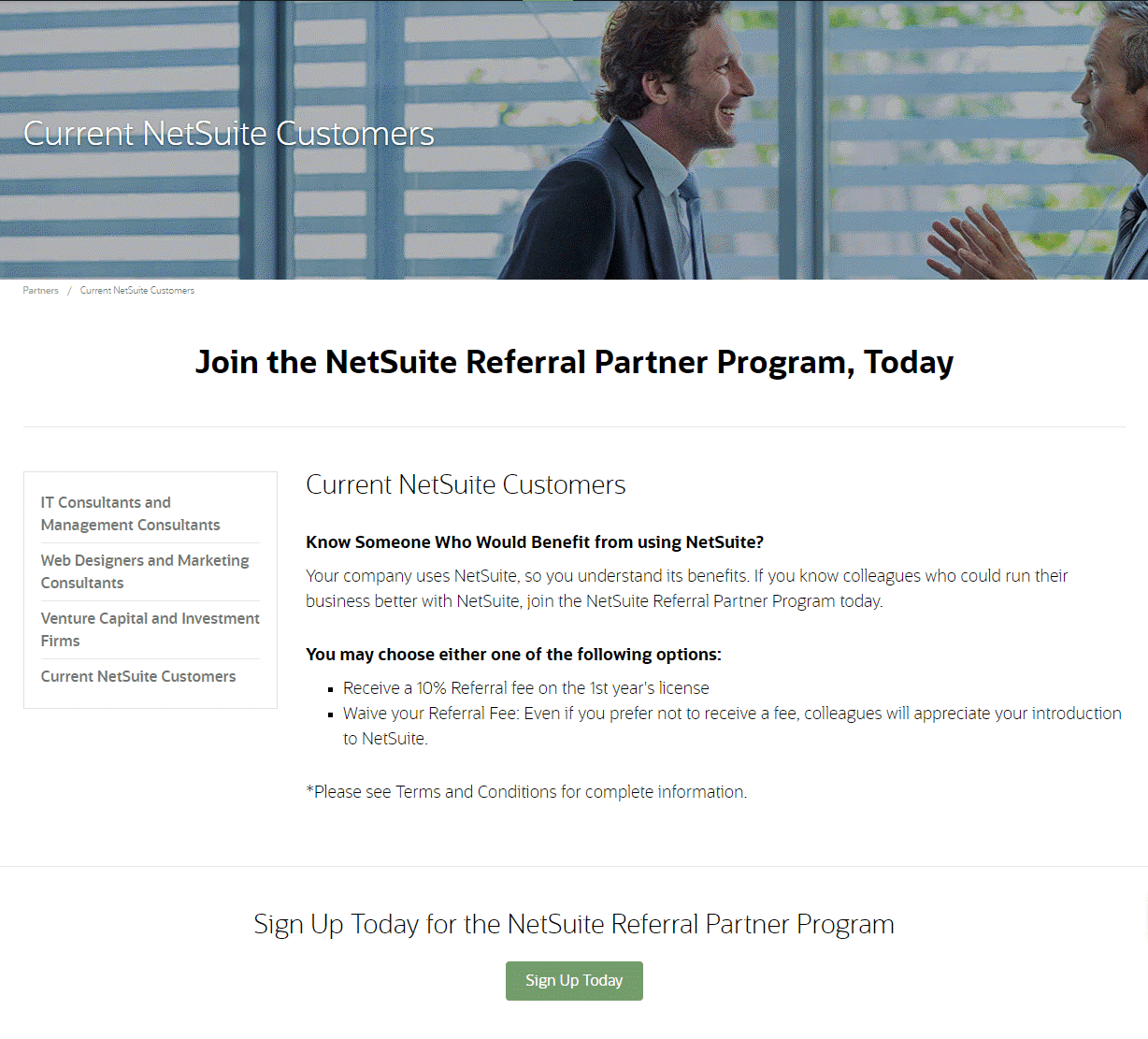
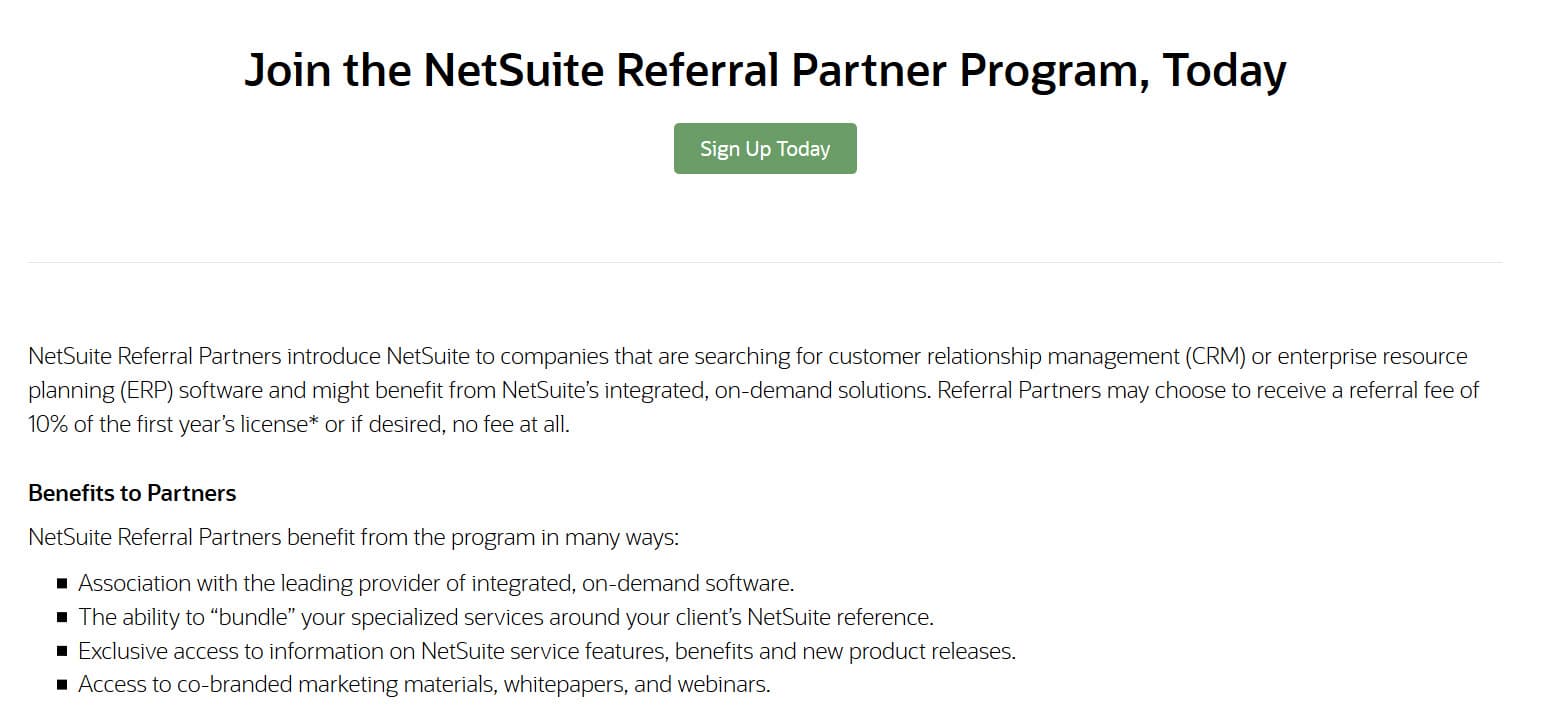
Website hosting platform Cloudways built its agency partner program using a tiered structure.
As agents and their clients spend more on hosting, the agents gain more and more partnership benefits. This includes priority for client support, a dedicated partnership manager, one-on-one training sessions, onboarding discounts for clients, better co-marketing opportunities, commission bonuses, and early access to features.
All agents are equipped for success via a detailed partnership guide, learning materials, and in-depth trainings.
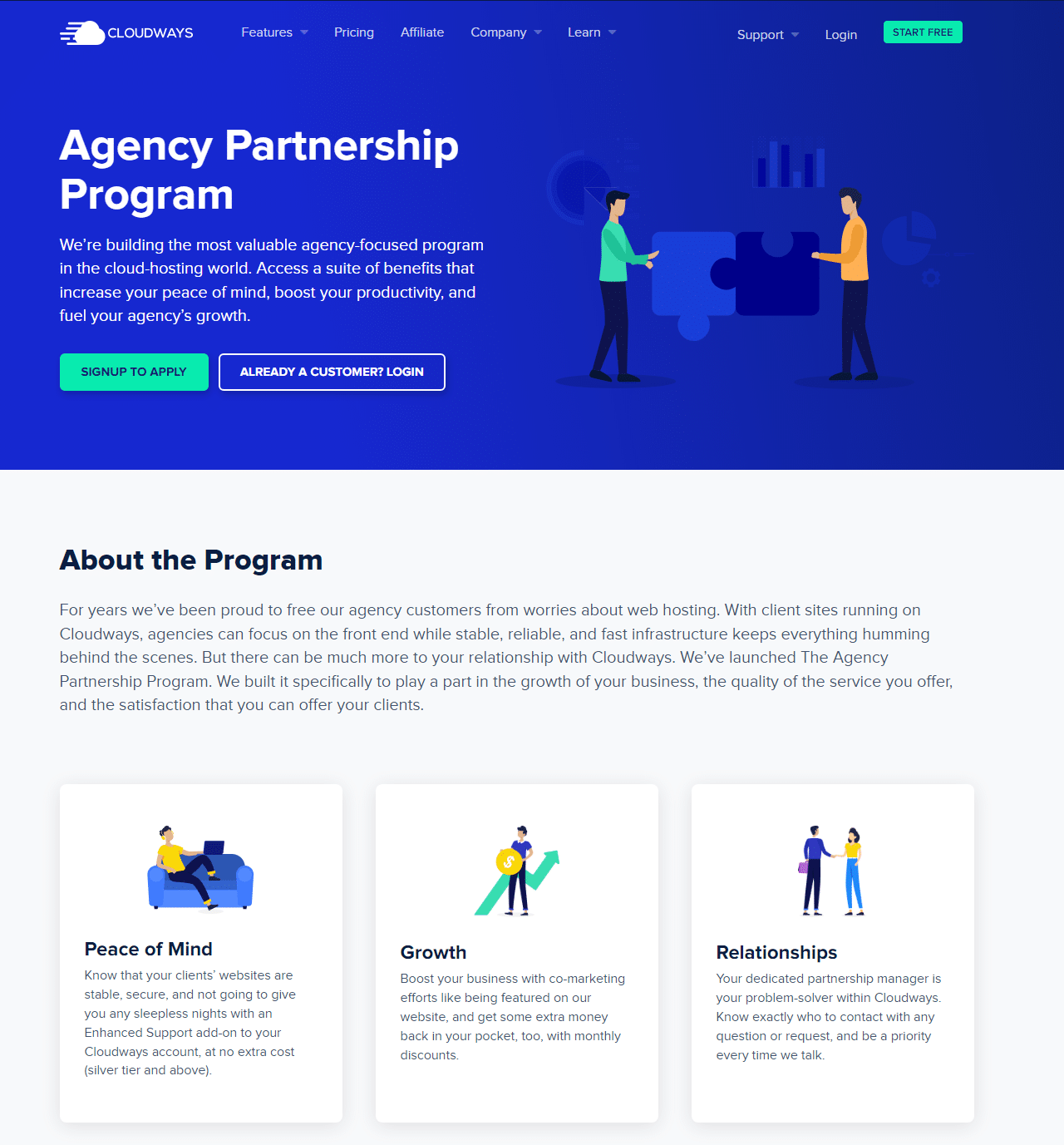
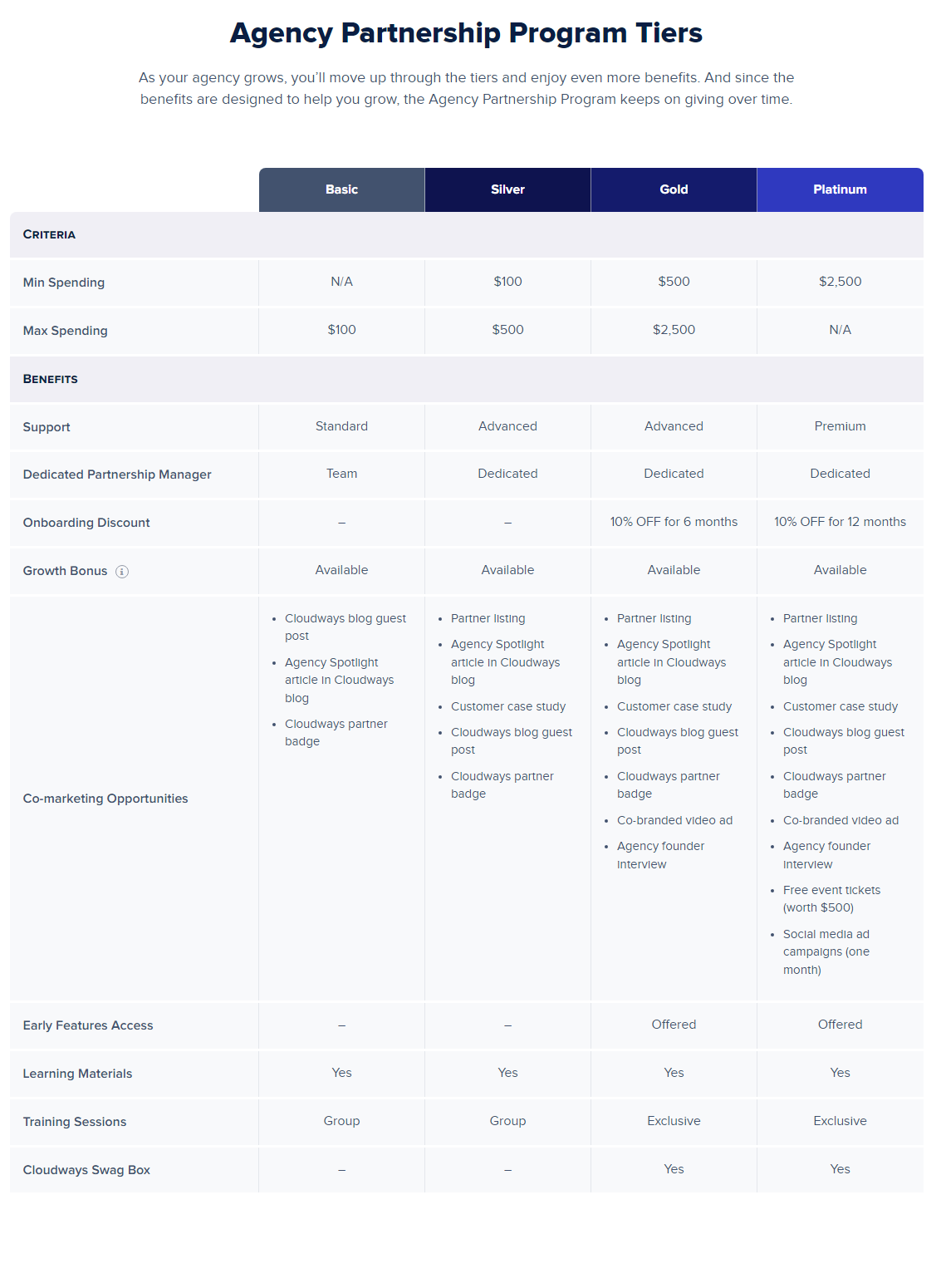
Workflow optimization platform Groove integrates with over 4,000 other apps, many of which they’ve formed partnerships with.
Integration partners receive featured mentions on Groove’s integration page (as “key partners”) and on the Groove blog, with direct links to their own sites. By recognizing the apps that enhance their own platform, Groove’s integration partnerships have resulted in growing user bases for every SaaS involved.
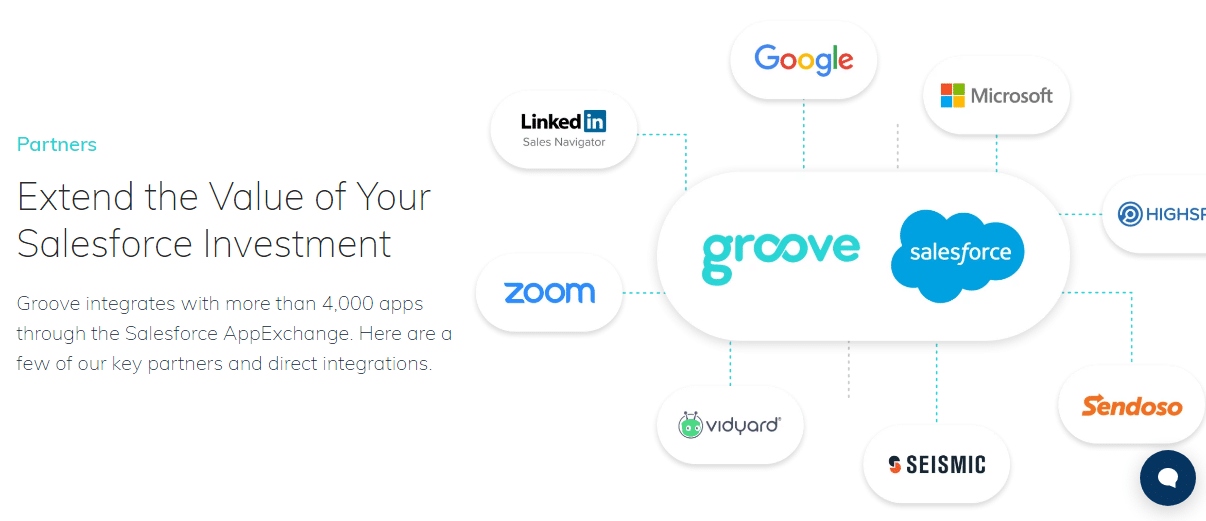
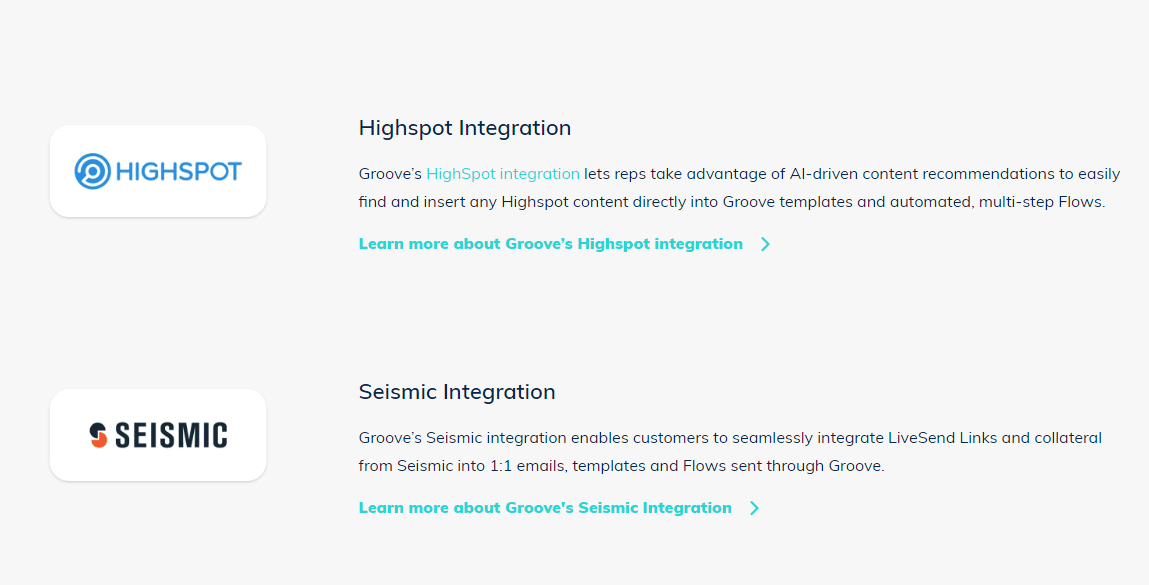
SaaS partner programs bring several benefits to the table. With partners, you can accelerate brand growth, increase your customer base, and offer a streamlined experience for the end-user. We expand on the benefits below:
If your partner operates in a market you’re unfamiliar with, it becomes easier for your business to enter by utilizing its brand presence.
For instance, when Monday.com wanted to expand to South Korea, they enlisted the help of SPH, a South Korean company.
Because SPH was an expert in the local market, they were able to localize Monday.com’s value to this market. In turn, SPH achieved three times revenue growth and attained 161 new customers for Monday.com.
It’s highly unlikely Monday.com would have successfully broken into this new market without the help of a local company like SPH. This is a shining example of how partner programs can allow you to successfully reach markets that are otherwise hard to penetrate.
SaaS partnerships go a long way in getting your brand name out there. You gain exposure to new, targeted markets – ones your partners have already built – and your partners earn rewards for each customer they bring you. It’s a win-win for you both.
When you partner with third parties, it doesn’t just increase your capacity to reach new markets. In many cases, partners will also offer specialized customer assistance or other added value from your partners. This creates a spiral effect of increased user signups, higher customer retention, and more revenue.
Starting a partner program means acquiring leads or customers without the higher cost of traditional ads. With this performance-based marketing method, you only pay when you see results.
For example, agent and broker partnerships bring in more qualified leads, reseller partnerships widen your potential customer base, and affiliate or referral partnerships increase user signups. All these programs will ultimately lead to increased revenue.
Partner programs are not all about reselling and getting leads. They also form lifelong relationships with other companies that complement your products.
For example, Hubstaff, a time tracking, and productivity management tool, integrates with more than 30 related partners, including Trello, Payoneer, and Asana. These integrations simplify the end user’s life and significantly increase Hubstaff’s customer base. The result? Hubstaff’s partnerships bring in 5-10% of their customers each month.
While SaaS partner programs are beneficial, not every SaaS is ready for a partner program just yet. Before starting a successful SaaS partner program, you need to check a few boxes first.
Establish the new markets or verticals you want to enter. It’s most effective if those markets are difficult to reach on your own.
If you are established, it means you have sufficient funds, personnel, and expertise to manage a partner program. That doesn’t mean your business needs to be large – it just needs to be up and running successfully.
You need to have concrete goals for your partnership in order for a program to be successful.
These goals should revolve around three key aspects: increasing revenue, growing your customer base, and increasing brand awareness.
Before creating a partner program, ensure you have a strong support team to handle an influx of new customers.
Your entire ecosystem, including tech infrastructure and personnel, should be positioned to handle this growth.
A large part of starting a partner program involves training your partners to sell your product. Your internal sales cycles should be clear and effective before you ask your independent partners to replicate these methods.
Pro tip: If your SaaS isn’t ready for a partner program, consider starting a SaaS referral program first. A referral program is open to all of your SaaS customers (not just select ones). It rewards them when they successfully recommend your products or services to people they know, and this recommendation results in a sale.
Do you have all the essentials in place for a SaaS partnership program? Are you ready to start a program of your own? For your SaaS partner program to return the best results, you’ll need to move through the following steps:
Start by choosing the partnership type that will help you achieve your business goals. You’ve learned about each already, but now it’s time to study all the partnership types in-depth and make an educated decision.
Here’s a brief reminder of the most common partnership types:
Look for the best individual partners for your needs.
Your partners should have access to the markets you want to enter. Consider how extensively you want to widen your reach:
Also, determine the unique advantages a particular partner will bring to your business.
But don’t focus solely on your needs. Determining a partner’s goals, needs, and challenges can help you better cater to them, which results in a successful program.
How would marketing or selling your product benefit the potential partner and their audience?
Partner experience, just like customer experience, means you need to enable your partners with the tools and knowledge necessary for them to succeed.
Finally, determine whether your partner’s values align with yours. It’s always best when there’s a harmony of values.
Pro tip: Don’t just establish what you want in a partner. Also evaluate any partnership deal-breakers you want to avoid at all costs. It will save your business the losses an unhealthy partnership is sure to bring.
After identifying a potential SaaS partner, make contact and discuss partnership goals with them. Establish what you and your partner can offer each other, and the type of partnership you have in mind.
This is also the time to present the incentive you are prepared to offer. Doing so will set clear expectations and a smooth start for your new partnership.
Don’t forget to listen to your potential partner, as well. Learn everything you can about the challenges your partner faces, their previous partnership relations, and the benefits they expect from working with you.
Pro tip: Is your SaaS B2B? If so, don’t miss our dedicated B2B partnership program guide, which includes best practices for finding, recruiting, and managing B2B SaaS partners.
Part of what makes a successful partnership is the incentive you offer. Incentives make each partner feel like part of your team, and motivated to help you grow.
Incentives should be something your partners care about, and increase in value as partners work to sell more of your products or services.
The Xero partner program is a great example of partner incentives done right.
Their incentive program is constructed around tiers. The more value a partner brings to Xero, the more they are rewarded. Partners get a free subscription to Xero software in the first tier, co-marketing resources, and 24/7 support through a dedicated account manager.
When a partner graduates to the top tier, they receive a market development fund, up to 30% discounts that can trickle down to the partner’s clients, and other enticing tier-one benefits.
Below are some incentives to try for your SaaS partner program.
It’s also a best practice to offer additional incentives to your most successful partners, including:
Check out our guide on channel partner incentives for more on offering the most effective partner rewards.
Finding the right partners and rewarding them well are only the first steps to a successful partner program.
It’s also vital to set and track key partner program metrics. If you don’t know how to measure your success, you won’t be able to prove whether your program provides a sufficient return on your investments and helps you meet overall business KPIs.
All your partner program goals need to be SMART – specific, measurable, attainable, relevant, and time-bound.
Here are some examples of what a SMART goal-setting strategy could look like for your partner program:
Besides setting goals for the entire partner program, you’ll also need to set individualized SMART goals for each partner relationship.
Individualized KPIs should be mutual between you and your partner, so make sure you’re on the same page regarding these goals.
Our partner program template will help you establish goals for your partnership, plus keep track of all the other steps involved in setting one up.
A channel partner agreement is the blueprint of what each party expects from the partnership. The agreement clarifies mutual goals, outlines the incentives, and establishes how partners can and can’t promote products.
Most importantly, a partner agreement defines the resources each party brings to the table, and the duties each will accomplish. It also states what happens should a partner act unethically or break the contract.
Both parties must sign the channel partner agreement before a partnership is set in motion.
This guide takes you through the A-Z of setting up a channel partner agreement.Train partners on how they should represent your brand to target customers, including key selling points, messaging, and brand standards. Be sure these essentials are thoroughly communicated early in the onboarding process.
Introducing partners to the tools they can use to track their progress is also vital. Build a detailed partner portal where they can keep tabs on their progress in real time (this can easily be done with the right software, as we’ll cover in the final section).
Pro tip: As each partner’s needs and challenges are also unique, it’s best to design individualized onboarding unique to each partner.
Communication is always essential in any relationship, so make it a point to regularly check in on every partner.
In addition, your partners should always know how to reach you with any questions they might have.
It’s also important to get your partner’s feedback regularly. You can do this through surveys, or during your regular one-on-one check-ins.
All in all, your partner program is far more likely to be successful if you know your partner’s needs, challenges, and how you can help make their life easier.
Yes, many sales tracking tasks fall on your CRM. But that software is only designed for managing customer relationships – not partnerships. A CRM isn’t optimized for tracking individual partner sales and purchases, or attributing each sale to the partner responsible.
Fortunately, there are detailed software solutions designed specifically for managing partnerships.
Partner management software (also called PRM software) streamlines all the tasks involved in your partnership, automates routine processes, and integrates with your existing tools and workflow.
Most importantly, PRM software tracks each sale associated with your partnerships, and automatically rewards partners for their sales in a timely manner. These features make it a lot easier to onboard, monitor, and manage relationships with your partners.
Other tasks partner management software can assist you with include:
Referral Rock’s PRM software platform has the flexibility to manage and track all types of SaaS partner programs. Our robust platform automates every step of the process, so it’s easy for your business to scale.
SaaS partner programs are still as effective as when they started trending in the 20th century. Whether you’re a large SaaS company or a small software startup, there’s a partner program that can help in lead generation and company growth.
However, to reap the full benefits, you have to find the right partners, establish your partnership guidelines, and set up the right system and tools for the job.